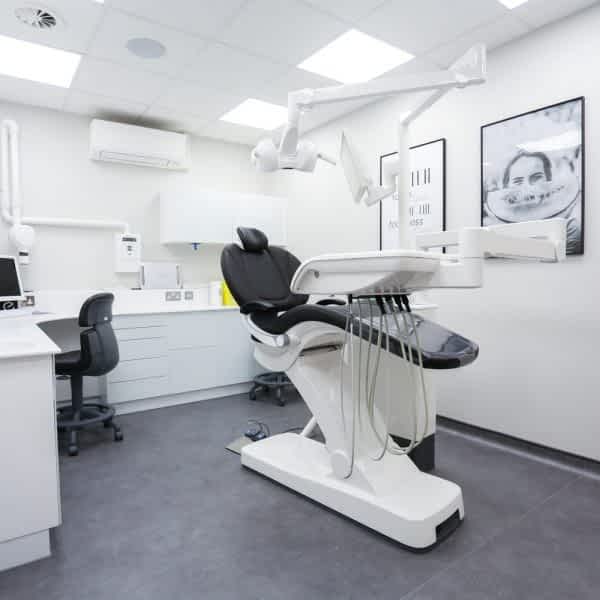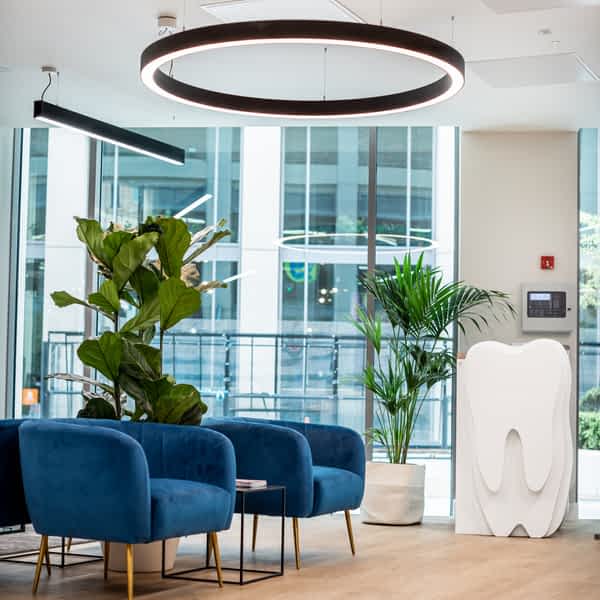
What is advanced gum disease?
Gum disease is a phrase we often hear discussed on TV ad breaks supporting a range of dental hygiene products. You will also be presented with a plethora of bottles, tubes and tools in the toiletries aisle of your local supermarket which help ‘keep gum disease at bay’ or to ‘help the fight against gum disease.’
In an ideal world, if you are maintaining a diligent oral cleanliness routine, advanced gum disease is unlikely to appear out of nowhere. However, if the problem has already started to manifest in symptoms then you may be beyond the point that a magic mouthwash or a new trending toothbrush can help.
It’s important to watch out for the early warning signs of gum disease and to take action quick. If left for too long it can evolve into a far more worrying condition which will require much greater professional intervention. This is when we are referring to advanced gum disease.
What does advanced gum disease look like?
Without prompt treatment, the early stages of gum disease or gingivitis whilst reversible can quickly become severe if ignored. Once it reaches this juncture you will be facing a diagnosis of periodontal disease or periodontitis. In this case, the gum tissue will likely begin to pull away from the teeth, creating enlarged gum pockets where bacteria can accumulate.
As it develops, the periodontitis continues to eat away at the gum tissue, eventually leading to tissue loss in the gums and jaw. Without this support structure in place, your teeth are likely to become loose and can eventually fall out. What may have started as a little blood spotting after brushing can have devastating consequences. Who, after all, wants to be greeted with a toothless smile in the mirror? Can you imagine what trying to eat with missing teeth might be like? Furthermore, the bacteria found in infected gums has links to other significant health issues such as diabetes, heart disease, and complications during pregnancy.
Advanced gum disease is fiercely progressive. It can sneak up on you when you least expect it or even arise due to a minor lapse in cleaning routine. This could be as a result of a lifestyle change or increasing demands at work or home. It is really not something which can be ignored in the hope that it will go away.
Thankfully, there are now a number of periodontitis treatment options to manage even advanced gum disease, which will hopefully minimise the possibility of tooth loss.
Can advanced gum disease be treated?
The answer is yes! Here are some of the treatment procedures your dentist may recommend in the case of advanced gum disease.
Scaling and Root Planing
The first approach that your dentist might like to consider is Scaling and Root Planing. This is a non-surgical procedure, which removes embedded bacteria from within enlarged gum pockets. Your dentist will need to measure the size of the pockets to decide whether this treatment is required and suitable for your condition. If so, they make use of manual or ultrasonic tools which remove all plaque and tartar deposits from your teeth and roots. Then they will smooth out the surface of the roots to help the gums reattach to your teeth and prevent a further build-up of bacteria.
You may require a follow-up visit to review the success of the results, but if all is well you should be able to keep on top of the condition through your own at-home cleaning, whilst ensuring you keep up to date with your check-up appointments.
On the other hand, if scaling and root planing fail to treat the condition, the gum pockets enlarge or inflame or you have an aggressive case of advanced gum disease, it may be necessary to consider alternative surgical techniques.
This could include Flap Surgery, Gingivectomy or Gingivoplasty.
Flap Surgery
If the gum does not fit securely around the teeth, then flap surgery will be considered. This involves pulling back the gum tissue, allowing access to the tooth roots and underlying bony structures. Once the tooth roots have been thoroughly cleaned and any repairs carried out to the bone tissue, the gum will be attached back into place over the healthy, clean bone and covered with a surgical dressing.
Gingivectomy
This procedure may be considered when the gums have started to pull away from the teeth, but before any damage has been caused to the bone structure. A Gingivectomy involves trimming and resealing the gum tissue to close deep pockets and prevent recurring infection. Any diseased gum tissue is removed and the remaining tissue stitched back into place. After the surgery and once the gums have healed it will be easier to keep your teeth and gums clean at home.
Gingivoplasty
This is also a procedure to remove gum tissue, but in this case your dentist may recommend a gingivoplasty to reshape and contour the gum line that may have been damaged by gum disease. It’s possible that this procedure happens in conjunction with a Gingivectomy to give the best possible aesthetic result following the removal of infected tissues.
In the case of severe tissue loss, we can graft new tissue from elsewhere, often the roof of your mouth to rebuild and reshape the gums. In other cases, we may be able to sculpt your remaining gum tissue without a graft.
These specialist surgical procedures relating to gum health will probably be conducted by a Periodontist. At Banning Dental Group clinics we have in-house dental specialists to handle a full spectrum of dental procedures, to save you being referred elsewhere.
What is a periodontist?
A Periodontist specialises in gum health. They have advanced training in the treatment of gum disease and periodontal disease. They are also well-versed in surgical procedures such as gum contouring and grafting.
Gum disease is one of the most common oral health conditions and a leading cause of tooth loss. A dentist can spot the early signs of gum disease and administer treatment. However, in its later stages, the infection can be much harder to treat.
You might need to see a periodontist if your dentist identifies that you are suffering from advanced gum disease. A periodontist can administer the specialist treatments and procedures mentioned above to alleviate your symptoms and help prevent long-lasting damage to your gums and jaw.
If you have any early signs of gum disease or are already concerned about advanced gum disease please book an appointment with your dentist so they can advise the best course of action.









